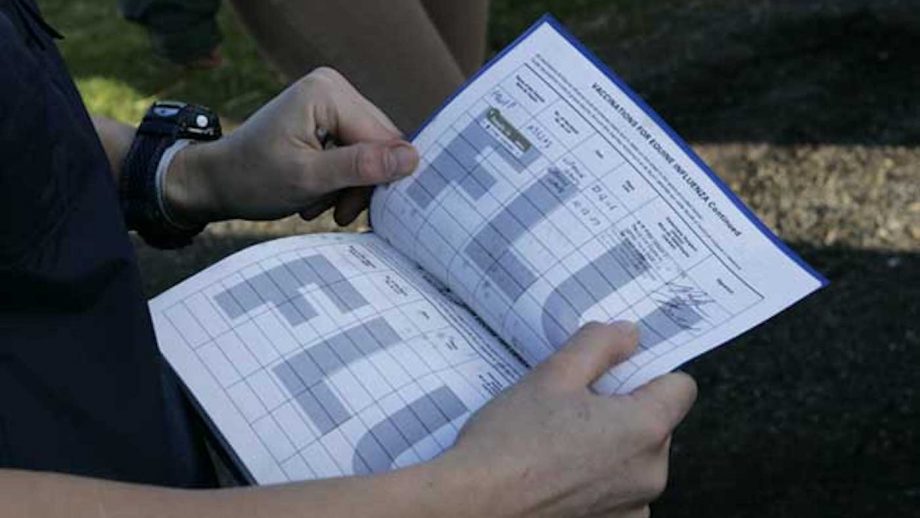Eight horses who had been vaccinated against equine flu have been diagnosed with the condition in the latest outbreaks recorded in the UK.
The Animal Health Trust (AHT) confirmed two separate outbreaks of flu in Suffolk on 4 February. One affected six unvaccinated non-thoroughbreds but the other, which the British Equine Veterinary Association (BEVA) described as “of particular significance”, involved eight two-year-old thoroughbreds who had been vaccinated.
Virus isolation and sequencing analysis is currently underway at the AHT and details “will be made available soon”.
The AHT is urging owners to be vigilant for signs of flu, including harsh, dry coughing, nasal discharge, lethargy and an increase in temperature.
“These clinical signs may be mild and not all horses will present with all of these,” an AHT spokesman said. “If a horse owner is concerned they should consult their vet as soon as possible who can take a swab and blood sample and send it for testing, free of charge, to the AHT’s equine influenza surveillance scheme which is funded by the Horserace Betting Levy Board.”
Equine flu is a highly contagious respiratory disease caused by the equine influenza virus, which is spread via respiratory droplets, direct contact, coughing and indirect contact if appropriate biosecurity measures are not taken
“The virus relies on this transmission to new horses to survive and one of the most notable features of flu is the very quick spread of clinical signs in groups of horses and its ability to spread large distances in the air,” the spokesman said.
“Therefore horse owners are encouraged to consider existing biosecurity arrangements in their yards. This includes ensuring they practise good general hygiene and isolating any horses showing flu-like signs. The AHT is also recommending horse owners re-vaccinate their horses if their vaccinations were carried out over six months ago, to maximise the chance of protective immunity.”
Referring to the AHT update, BEVA said in a statement: “Of particular significance is that one of these two recently confirmed outbreaks involves multiple vaccinated horses.
Continues below…

Equine flu: what all owners need to know to protect their horses

Subscribe to Horse & Hound magazine today – and enjoy unlimited website access all year round
“We would again urge increased awareness among UK veterinary surgeons and their horse-owning clients as to the possibility of equine flu as the cause of respiratory disease in horses and ponies under their care, especially where typical signs appear acutely and spread rapidly and even where horses have been vaccinated against flu. Prompt laboratory confirmation of a diagnosis will allow the most appropriate management decisions to be made asap, including voluntary cessation of horse movements to try and avoid disease transmission and implementation of increased periods of rest to reduce the risk of secondary complications.”
For all the latest news analysis, competition reports, interviews, features and much more, don’t miss Horse & Hound magazine, on sale every Thursday.




